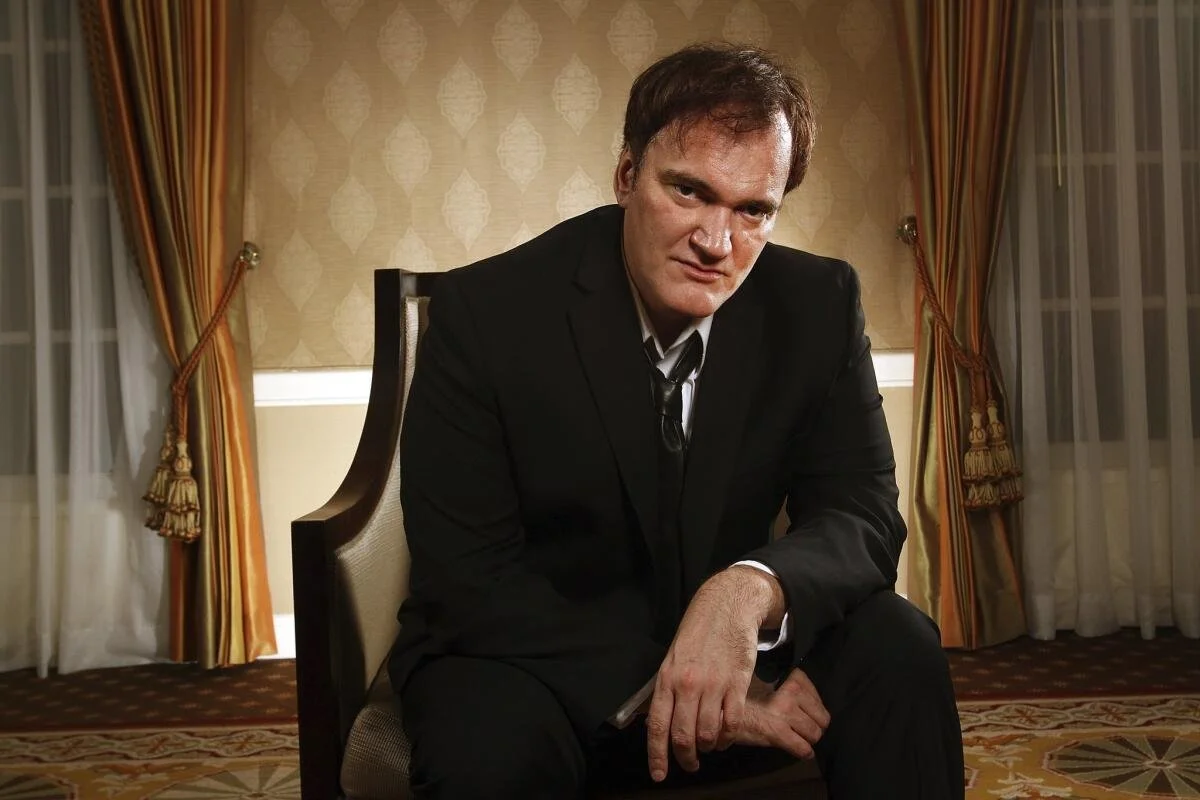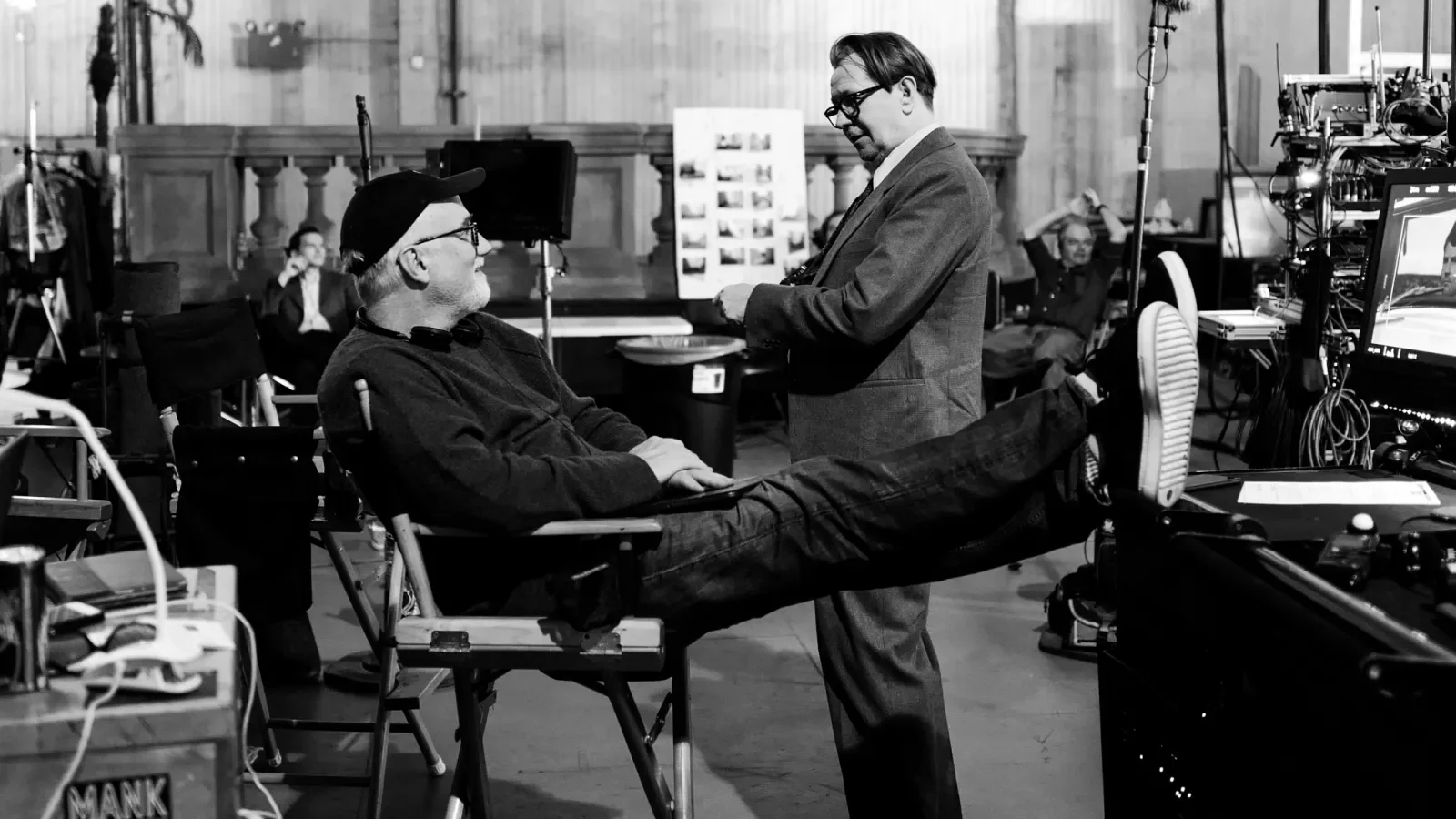Quentin Tarantino Explains Why David Fincher Is Directing the ‘Once Upon a Time in Hollywood’ Netflix Follow-Up
Getty Images Credit Levon Biss / Photo credit: Merrick Morton
The director says Fincher’s involvement “shows a level of seriousness” toward his work as Brad Pitt returns as Cliff Booth.
When Quentin Tarantino announced years ago that he would retire after 10 films, few believed he would stick to the promise. Yet the filmmaker behind Pulp Fiction, Kill Bill, and Inglourious Basterds has remained steadfast. His 2019 Oscar-winning hit, Once Upon a Time in Hollywood, was his ninth feature, leaving fans and the industry obsessing over what the “final film” might be.
That’s why it came as such a surprise when Netflix revealed plans for a Once Upon a Time in Hollywood follow-up—with Brad Pitt reprising his role as stuntman Cliff Booth—but with David Fincher, not Tarantino, in the director’s chair.
Speaking on The Church of Tarantino podcast, the filmmaker explained his reasoning, his admiration for Fincher, and the creative risks he still wants to take.
Why Tarantino Passed on Directing
Credit: Kirk McKoy
“I love this script, but I’m still walking down the same ground I’ve already walked. It just kind of unenthused me,” Tarantino admitted. “This last movie, I’ve got to not know what I’m doing again. I’ve got to be in uncharted territory.”
For Tarantino, the Netflix sequel risked becoming a retread. He has long stressed that each of his films should feel like an experiment in form, tone, or genre. Reservoir Dogs was a chamber piece. Jackie Brown reimagined blaxploitation through Elmore Leonard. Kill Bill mashed up martial arts and spaghetti westerns. Re-visiting Cliff Booth as his 10th and final film, he feared, would betray that philosophy.
Yet Tarantino’s fingerprints are still all over the project. He wrote the script and will serve as a producer. “I’ll be around if they need me,” he added.
Why David Fincher Was the Right Choice
Credit: Gisele Schmidt/NETFLIX
Perhaps most surprising was Tarantino’s enthusiasm for handing the reins to Fincher.
“I think me and David Fincher are the two best directors. So the idea that David Fincher actually wants to adapt my work, to me, shows a level of seriousness towards my work that I think needs to be taken into account,” he said.
Fincher’s track record with adaptations—Fight Club (1999), Zodiac (2007), The Social Network (2010), and Gone Girl(2014)—positions him as one of the most meticulous filmmakers alive. His precision, obsession with detail, and darker tonal palette could take Cliff Booth’s story into new territory while maintaining Tarantino’s sharp dialogue and narrative structure.
It’s also a strategic win for Netflix. The streamer has an ongoing partnership with Fincher, who directed Mank (2020) and The Killer (2023). Pairing Fincher’s craft with Tarantino’s writing and Pitt’s star power gives the platform a prestige project with both awards and global audience potential.
The Legacy of Once Upon a Time in Hollywood
Tarantino (left) and Robbie on the set.© 2019 CTMG INC./SONY PICTURES ENTERTAINMENT
Tarantino’s ninth film was both a love letter to 1960s Los Angeles and a revisionist history of the Manson era. Beyond the awards—10 Oscar nominations and two wins—it resonated with audiences as an elegiac, sometimes playful goodbye to a Hollywood that no longer exists.
Cliff Booth quickly became a fan-favorite. Brad Pitt’s laid-back, quietly lethal stuntman won him his first acting Oscar. For many fans, the chance to revisit Booth’s story—even outside Tarantino’s directorial eye—is irresistible.
POPULAR ON THE CINEMA GROUP
This Netflix continuation suggests Tarantino sees Booth as a character who transcends his strict “10 films” boundary. By letting Fincher shape Booth’s next chapter, Tarantino preserves his retirement plan while giving fans what they want.
The Abandoned Movie Critic
Quentin Tarantino at the 78th annual Cannes Film Festival at Palais des Festivals in Cannes, France, on May 17, 2025. AFP via Getty Images
Equally fascinating is Tarantino’s candid explanation of why he abandoned what many expected to be his swan song: The Movie Critic.
“I really, really like it. There was a challenge that I gave to myself when I did it—can I take the most boring profession in the world and make it an interesting movie?” he said.
The project, conceived as both a film and possibly a TV series, would have centered on a critic—a character profession Tarantino admitted few audiences would care about. “Who wants to see a movie called The Movie Critic? That was the test.”
While the director clarified it was a “spiritual sequel” to Once Upon a Time in Hollywood, he also shot down speculation: “Cliff Booth was never in The Movie Critic.”
Scrapping the film shows Tarantino’s instinct to protect his legacy. His final film, he insists, must take him into uncharted territory.
What This Means for Tarantino’s 10th
Credit: Alexander Zemlianichenko/AP
If the Netflix follow-up doesn’t count as his 10th, speculation reignites: what will? Some suggest he may surprise with a wholly original genre experiment, others point to his fascination with adapting pulp literature. Whatever it is, Tarantino seems determined to make his last film something neither fans nor critics could predict.
In the meantime, the Fincher-directed Once Upon a Time in Hollywood project keeps his world alive. It’s both a passing of the torch and a reminder of the cultural weight Tarantino still commands—even as he prepares to bow out.



























